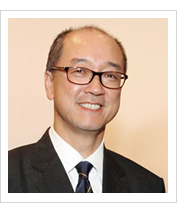 |

 |
 |
 |
Oleg Deripaska
CEO of UC RUSAL |
Mr Oleg Deripaska heads United Company RUSAL, the world’s largest producer of aluminium that employs 76,000 people in 19 countries across 5 continents.
Upon his graduation from Moscow State University and the Plekhanov Academy of Economics, Mr Deripaska set up his own company in metals trading. He used the company’s profits to buy a stake in the Sayanogorsk Aluminium Smelter of the Sibirsky Aluminium Group, and became Director General of Russian Aluminium (RUSAL) when Sibirsky Aluminium merged with Sibneft, a major Russian oil company. United Company RUSAL was founded in 2007 through the merger of RUSAL, Siberian-Urals Aluminium Company, and Glencore, a Swiss natural resources group. |
Mr Deripaska also established Basic Element in 2001 to expand his business interests beyond the aluminium industry. With over 300,000 employees globally, its portfolio includes energy, banking, insurance, construction, mining, car and aircraft manufacturing.
Mr Deripaska is Vice President of the Russian Union of Industrialists and Entrepreneurs, Chairman of the Executive Board of the Russian National Committee of the International Chamber of Commerce and a member of the Russian Government’s Competitiveness and Entrepreneurship Council. He heads the Russian representation on the Asia-Pacific Economic Cooperation Business Advisory Council. |
 |
 |
 |
Tony F Chan
President of HKUST |
Prof Tony F Chan is the President and Chair Professor in Computer Science & Engineering, and Mathematics at HKUST, a top-ranked university in Asia.
Prior to joining HKUST in September 2009, Prof Chan was Assistant Director of the U.S. National Science Foundation (NSF) in charge of the Mathematical and Physical Sciences Directorate, which is the largest directorate at NSF. In this position, he guided and managed research funding of about HK$10 billion a year in astronomy, physics, chemistry, mathematical science, material science, and multidisciplinary activities. Before this, Prof Chan served the University of California at Los Angeles (UCLA) from 1986 to 2006, and was promoted to Dean of Physical Sciences in 2001. |
Prof Chan is an expert in mathematical image processing and computer vision. He has published over 200 refereed papers and is one of the world’s most cited mathematicians. He is also an active member of many scientific societies, including Fellow of the Society of Industrial and Applied Mathematics where he had served on both the Board of Trustees and the Council, as well as Member of the American Mathematical Society, and the Institute of Electrical and Electronic Engineers.
Prof Chan received his BS and MS degrees in Engineering from the California Institute of Technology (Caltech) and his PhD in Computer Science from Stanford University. He pursued postdoctoral research at Caltech, and was a faculty of Computer Science at Yale University before joining UCLA.
|
 |
 |
| About UC RUSAL |
UC RUSAL (www.rusal.com) is the world’s largest producer of aluminium, in 2009 accounting for approximately 10% and 10% of global production of aluminium and alumina, respectively. UC RUSAL employs about 76,000 people in 19 countries, across 5 continents. UC RUSAL markets and sells its products primarily in the European, Asian and North American markets. UC RUSAL's ordinary shares are listed on The Stock Exchange of Hong Kong Limited (Stock code: 486) and global depositary shares representing UC RUSAL's ordinary shares are listed on the professional compartment of Euronext Paris.
Founded in March 2007, the United Company is a result of the merger of RUSAL, SUAL, and the alumina assets of Glencore of Switzerland. En+ Group owns a 47.41% stake in the United Company, 17.02% is owned by ONEXIM, SUAL’s shareholders hold 15.80 %, 8.62% is owned by Amokenga Holdings, a wholly owned subsidiary of Glencore, and others own 11.14%.
In 2009 UC RUSAL produced 3.9 mln tonnes of aluminium and 7.3 mln tonnes of alumina. United Company RUSAL's assets include bauxite and nepheline ore mines, alumina refineries, aluminium smelters, casthouse business for production of alloys, foil mills and production of packaging materials as well as power-generating assets.
RUSAL is comprised of 16 aluminium smelters, 12 alumina refineries, 8 bauxite mines, 3 powder metallurgy plants, 3 silicon smelters, 3 secondary aluminium plants, 3 aluminium foil mills, 2 cryolite plants, and one cathode plant. RUSAL has its own R&D and engineering capabilities and owns the RA-300 and RA-400 technologies.
|
 |
 |
| About HKUST |
The Hong Kong University of Science and Technology (HKUST), situated in Hong Kong, China, is a top-ranked university in Asia. Established in 1991, HKUST has five schools - Science, Engineering, Business and Management, Humanities and Social Science, as well as the Fok Ying Tung Graduate School in Nansha, Mainland China. The University has nine research institutes, among them the Institute for Advanced Study of HKUST, set up to foster cross-discipline collaboration among the top scientists and scholars in the world. Currently, there are about 6,000 undergraduate students and 3,500 postgraduate students. As a research university, HKUST focuses on five areas of frontier research, namely nano science and technology; biological sciences and biotechnology; electronics, wireless and information technology; environment and sustainable development as well as management education and research.
|
 |
 |
| HKUST Institute for Advanced Study |
As a major initiative of HKUST's 2005-2020 Strategic Plan, the Institute
for Advanced Study (IAS) is dedicated to the advancement of knowledge to
meet the great challenges of the 21st century. IAS aims to bring together
the most brilliant minds to drive cutting-edge discovery and scholarship.
Its goal is to be a premier intellectual center and a platform for
innovation and scientific development in Hong Kong and the Greater China
region. IAS has 14 Visiting Members, 3 Affiliate Members and 3 Fellows
from diverse disciplines who champion collaborative, inter-disciplinary,
inter-institutional projects in high-impact areas. Since its establishment
in 2006, it has sponsored some 120 distinguished lectures, seminars,
conferences and workshops. Guest speakers include Nobel Laureates,
members of National Academies, world renowned academics and researchers,
senior government officials and business leaders.
|
|
|
|
|


